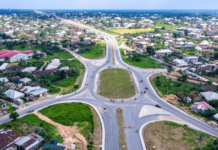Nigeria is set to receive a $1.7 billion loan from the World Bank, with final approval expected on September 26, 2024. This loan, part of ongoing financial support, will focus on three major development projects aimed at boosting the country’s economy and improving essential services like healthcare and infrastructure.

The loan will be distributed among three key projects. The first, Nigeria: Primary Healthcare Provision Strengthening Programme, will receive $500 million. This program aims to improve healthcare by strengthening the country’s primary health systems, upgrading infrastructure, and training healthcare workers to ensure better service delivery. The Ministry of Health will oversee the implementation of this initiative.
The second project, called Nigeria Human Capital Opportunities for Prosperity and Equity Governance, will also receive $500 million. This project is designed to enhance human capital by improving education, healthcare, and social protection services. It will focus on increasing access to essential services for women and children and improving the quality of health services across Nigeria. The Ministry of Budget and Economic Planning, the Ministry of Health and Social Welfare, and the Ministry of Education will work together to implement this project.
The third and largest project is the Sustainable Power and Irrigation for Nigeria Project, which will receive $700 million. This initiative focuses on generating sustainable energy and developing irrigation systems that can support agriculture and industry. The Ministry of Water Resources and Sanitation will manage the project, which aims to drive long-term economic growth by addressing critical infrastructure needs in both the power and agricultural sectors.
According to official documents, these projects have successfully cleared all necessary stages of negotiation between the Nigerian government, represented by the Minister of Finance, and the World Bank. Approval is expected on September 26, marking a significant milestone in Nigeria’s efforts to strengthen its economy.
If approved, this will bring the total amount of World Bank loans received by Nigeria in 2024 to $3.95 billion. Under President Bola Tinubu’s administration, the country has secured a cumulative $6.65 billion in World Bank loans, with funds being directed to key sectors such as healthcare, infrastructure, and education.
The need for this financial support is underscored by Nigeria’s rising external debt, which has grown significantly in recent years. According to the Debt Management Office, Nigeria’s total debt to the World Bank stood at $15.59 billion as of March 2024. The country’s borrowing is primarily aimed at addressing critical economic challenges, including healthcare, education, and energy, which are essential for achieving sustainable development.
In addition to the loans set to be approved in September, two other projects are scheduled for funding later this year and early next year. The Rural Access and Agricultural Marketing Project, with a proposed loan of $500 million, is expected to be approved by December 16, 2024. Meanwhile, the Solutions for the Internally Displaced and Host Communities Project, which focuses on supporting displaced persons, will be reviewed for approval by April 8, 2025.
These loans are seen as crucial steps in improving Nigeria’s economic stability and addressing pressing issues in key sectors. However, concerns remain about the country’s rising debt and the long-term impact of continued borrowing on Nigeria’s economy.




